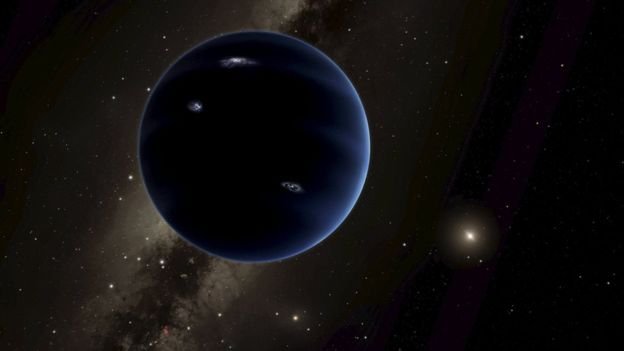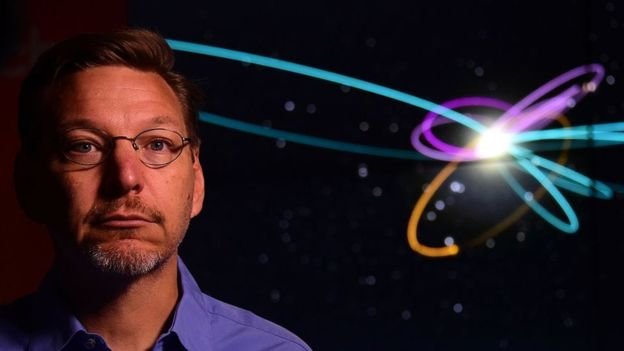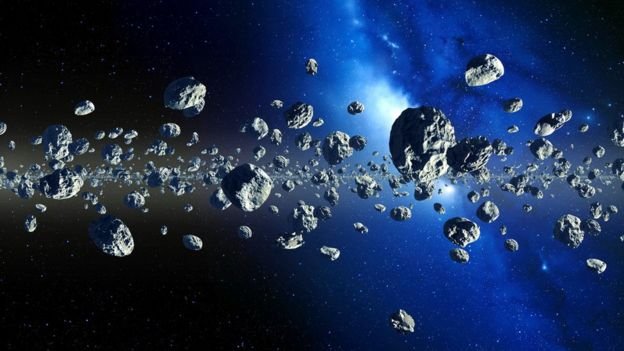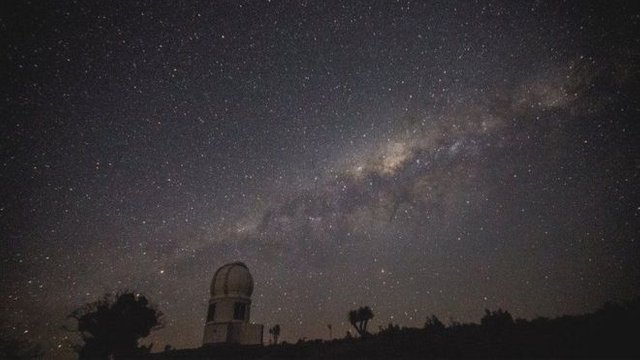The "Ninth Planet" (Discovered 3 years ago) to which you can name it.

In my childhood, when I was in elementary school, the ninth planet was Pluton, that situation changed in 2006 when Michael Brown, an expert from the prestigious California Institute of Technology (Caltech), plus a group of astronomers, downgraded Pluton's status because it is too small to enter into the category of planet.
Well, our friend Brown along with his colleague Konstantin Batygin surprised again with a new announcement: in the end there would be nine planets, since there is one hitherto unknown, its hides in the farthest reaches of our system. According to the study, which was published in 2016 in The Astronomical Journal, this planet would be rocky and completely freezing, it would be between five and ten times larger than Earth's and it would take between 10,000 and 20,000 years to go around the Sun

Michael Brown, lead author of the study.
But there is a small problem nobody has ever seen Planet Nine and adding the lack of definitive evidence about their existence has caused criticism from their scientific colleagues, but Michael Brown acknowledged that "amazingly" no one has been able to prove to them that their calculations of the ninth planet are wrong, in all this time, no evidence has emerged to refute its existence conclusively.
But, on what these researchers based to affirm the existence of this giant planet? The researchers relied mostly on indirect data, such as their supposed gravitational fingerprints. In particular, they studied six objects located in the so-called Kuiper Belt, a region that extends from Neptune's orbit into interstellar space. These icy bodies have elliptical orbits that point in the same direction, something that is so unlikely that it can only be explained by the presence of a objet like Planet Nine.

The Kuiper belt.
Another hypothesis states that Planet Nine would be responsible for the inclination of the planets of the Solar System with respect to the equator of the Sun. 6 degrees of deviation in over 4.5 billion years. On the other hand, this massive body would explain why some objects in the Kuiper belt orbit in the opposite direction to everything else in the Solar system. also another study was published that adds to the evidence, where its stated that Planet Nine even managed to twist and change the sense of the orbit of other objects distant from the Solar System.
"Scientists are often good at developing conclusions by contrast, in the style of Sherlock Holmes" Christopher Smeenk, a philosopher of science at the University of Western Ontario.
Brown revealed that in fact he began to investigate the subject not to confirm this theory but to refute it. According to the astronomer, every time those strange orbital behaviors are observed, the typical thing is to attribute it to the existence of unknown planets.
.png)
Konstantin Batygin shared on his Twitter account the article from The Atlantic titled: "Is Planet Nine real?" And commented: "The short answer is 'yes'.
But I wonder how reliable is this? So, when I was researching, I found a BBC interview with Jim Green, director of the Planetary Science Division of the National Aeronautics and Space Administration of the United States (NASA). he say that both Brown and Batygin are highly qualified scientists, leaders in their field. And he highlighted the importance of his research. "This is a huge step forward to understand what happens in a region of our solar system that we virtually know nothing about," "It's a really important observation." However, the director of NASA clarified that it will require many more observations to confirm the theory of these experts, since the presence of a ninth planet may not be the explanation for the phenomena described above.
.gif)
Name "Planet nine"
As mentioned in the title, you can name this planet because "Planet Nine" is just its momentary name. Astronomers at the National University of Australia (ANU) are requesting public help to search for the ninth planet. Whoever finds it among the thousands of images that the university published on its website, will be able to participate in the election of its name. Although the scientists already made it known that they will not accept ridiculous names and not names of Greek gods (there are already enough).

Siding Spring Observatory in New South Wales, Australia.
Although it is not something that is among your plans, if you have a little time and desire, you can try it. you just have to click here.
Sources:
https://www.bbc.com/mundo/noticias/2016/03/160330_ciencia_nuevo_planeta_nueve_egn
https://es.wikipedia.org/wiki/Planeta_Nueve
https://www.nationalgeographic.es/espacio/un-noveno-planeta-en-el-sistema-solar
https://www.elespectador.com/noticias/ciencia/la-teoria-de-un-noveno-planeta-en-nuestro-sistema-solar-toma-fuerza-articulo-789258
I propose "Nibiru" as name of this planet. :D
I thought exactly the same thing when I wrote the post hahaha
Hello @rikrd3. You have here an insightful post but it clearly didn't receive the attention it deserved. I think this isn't unconnected to the fact that your images aren't credited.
Keep on steeming valuable and well-written posts and you'd get noticed someday.
Thank you for your advice, I will take it into account, the images were taken from the same websites that are in the sources but now i will put the source under each image. The little attention does not worry me, I'm new here, I have some projects that I hope to share soon with the community, I'm here to stay.
I like your spirit.